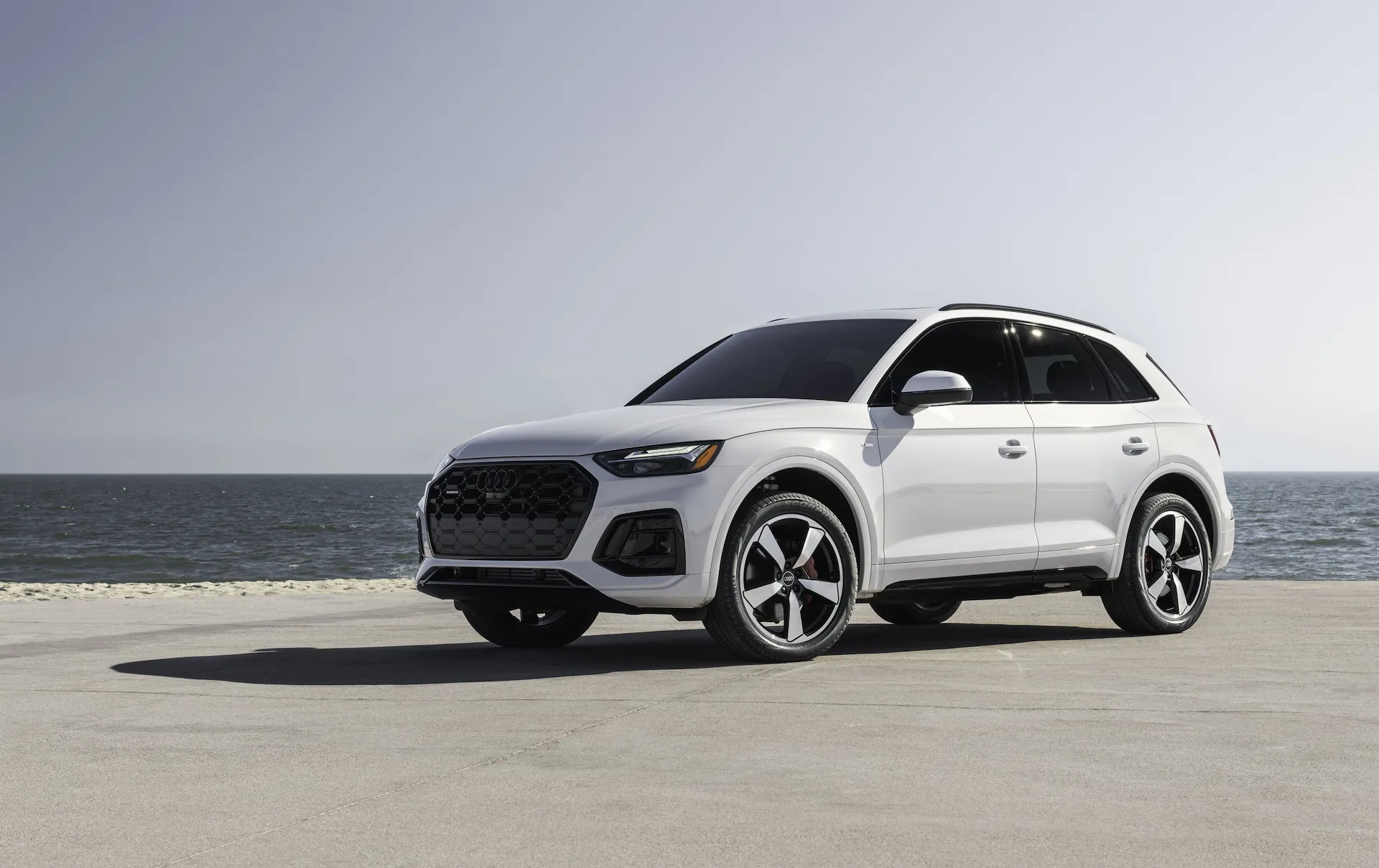Newsletter
Subscribe to our newsletter
Subscribe
The 2025 Audi Q5 S line TFSI e returns for the new model year with nearly no change, after receiving a more advanced active lane control system and a heated steering wheel last model year. Split among three trim levels, PHEV Q5 prices range from $59,795 to $67,995, including $1,295 in destination. That buys a turbo-4 five-seat crossover with a 17.9-kwh battery that blends in power to net 362 hp and 369 lb-ft of torque.
It also buys one of the very few PHEVs that qualifies for a federal tax credit of $3,750.
Audi pegs the 4,652-pound PHEV crossover SUV at a 0-60 mph time of 5.0 seconds, and a top speed of 130 mph.
In our 2021 Audi Q5 PHEV review, we noted that Audi had planned for up to three PHEVs in its U.S. lineup—and that, even back then, the Q5’s meager 19-mile electric range needed to do better. Nearly four years later, the goalposts have moved: while EVs with exceptional range douse the market, the lower-cost plug-in hybrids on the way are aiming for something more like 70 miles of electric range, helped by a new generation of batteries that could benefit PHEV as much as electric vehicles.
As EPA rules for emissions have been relaxed to accommodate a slower increase in battery-electric vehicle production and sales, PHEVs will fill in the gaps in some automakers’ lineups. Hyundai’s Genesis brand, for example, had planned a range of battery-electric vehicles to be launched over the next few years, on the heels of the GV60 hatchback and electrified versions of the G80 sedan and GV70 SUV. Now, Genesis dealers have reportedly asked for hybrids and plug-in hybrids to sell in the U.S., spun off from those latter vehicles. No final decision has been announced.
Likewise, a range of new GM plug-in hybrids due in 2027 should include PHEV versions of the company’s full-size trucks. GM has been without a plug-in hybrid since it discontinued the former Chevy Volt in favor of the Bolt EV hatchback—which returns in 2026 as its most affordable EV.
The additions to the PHEV family should help fuel an increase in U.S. plug-in hybrid sales that had already hit a record high in 2023 of more than 250,000 sales—accounting for about 20% of all sales of vehicles with a plug, according to the Department of Energy.
But at some brands, for the near future, plug-in hybrids will be an opportunity missed. Some car companies are too far along in electrification to look back, while others issue stop-gap products while they retool their future lineups. The Q5 PHEV’s evidence of Audi’s place somewhere in the former category—though it remains an object lesson in the ongoing debate about PHEVs in general: will plug-in hybrids be plugged in and used as intended, or will oil demand increase anyway?




